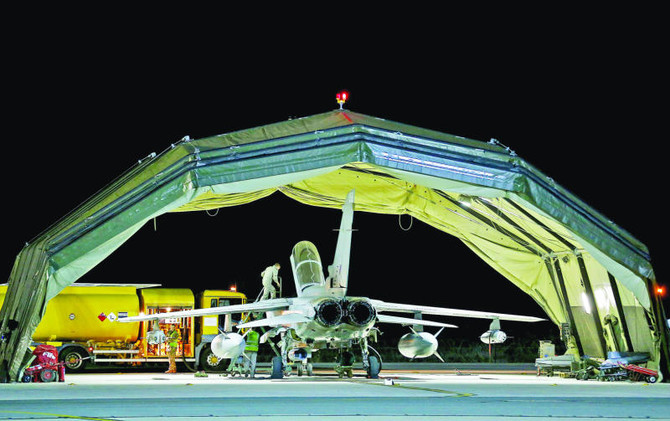JEDDAH: The Syrian National Coalition (SNC) has promised that it would use the upcoming Riyadh Conference to unify all moderate opposition forces and form an interim government in line with the Geneva agreements on Syria.
The country could only face up to its major political and military challenges if there is unity, the SNC stated, according to a report in a local publication on Thursday.
Hassan Abdul Azeem, general coordinator of the SNC, said: “The Riyadh Conference is important and the coalition wants to ensure it is successful.”
Saleh Muslim, president of the Kurdish Democratic Union Party, was quoted as saying that the conference needs to have representatives of all groups. There has also been some controversy, with Turkey stating that it did not want Muslim, and the former president of the SNC Ahmed Jaraba to be part of the opposition delegation. In addition, the Syrian Democratic Forces did not receive an invitation to attend the conference.
There has been some confusion on who would attend the conference, with the SNC reportedly sending two separate lists of names, one from the SNC President Khaled Khojah and the other from his political committee.
Saudi Arabia has invited 65 Syrian opposition leaders and members to the conference from Dec. 11 to 14 in Riyadh to unite the opposition ahead of new peace talks, a key issue in stepped up efforts to end the nearly five-year civil war.
It marks an attempt to bring together groups whose disunity has been a long-standing obstacle in seeking a peaceful solution to the conflict that has killed more than 250,000 people and displaced millions. Iran, however, has insisted some of the opposition groups are terrorists.
Meanwhile, Western diplomatic sources at the United Nations have confirmed that meetings on Syria’s future would be transferred from Vienna to New York. The first two rounds of the Syria peace talks were held in Vienna.
In a November meeting on Syria in Vienna, participants agreed on a political process leading to elections in Syria within two years, but differences remained on key issues such as President Bashar Assad’s fate, according to a report.
The United States, its Gulf allies and Turkey say Assad, whose crackdown on initially peaceful protests in 2011 triggered the war, must step down as part of any eventual peace deal.
Iran and Russia back the Syrian president, saying that global powers should not impose their political will on Syria, the report stated.
Riyadh meet: Turkey objects to some Syrians
Riyadh meet: Turkey objects to some Syrians











